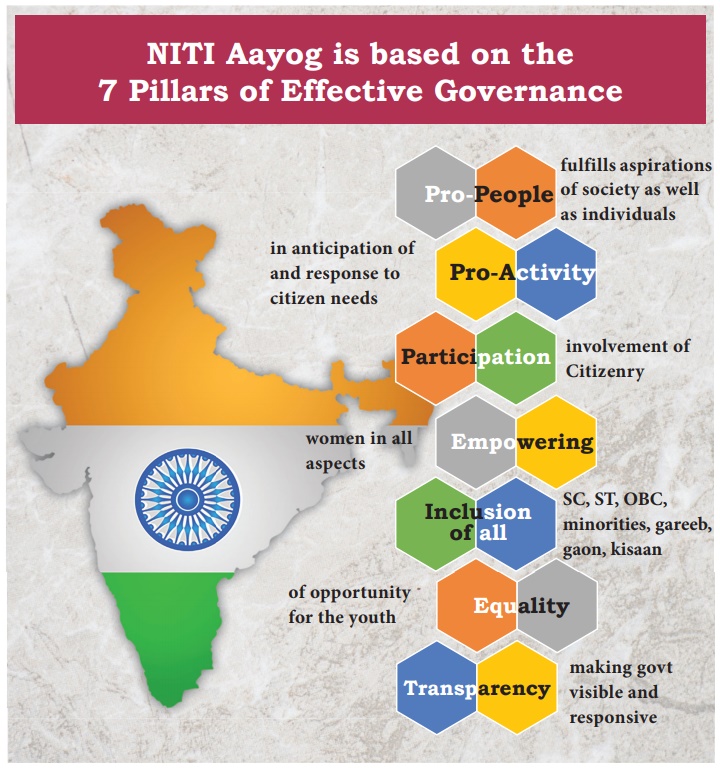Economics - Functions of NITI Aayog | 12th Economics : Chapter 11 : Economics of Development and Planning
Chapter: 12th Economics : Chapter 11 : Economics of Development and Planning
Functions of NITI Aayog
NITI Aayog
NITI Aayog (National Institution for Transforming India) was
formed on January 1, 2015 through a Union Cabinet resolution. NITI Aayog is a
policy think-tank of the Government of India. It replaced the Planning
Commission from 13th August, 2014. The Prime Minister is the Chairperson of
NITI Aayog and Union Ministers will be Ex-officio members. The Vice- Chairman
of the NITI Aayog is the functional head and the first Vice-Chairman was Arvind
Panangariya.
Functions of NITI Aayog
1. Cooperative and Competitive Federalism: To enable the States to
have active participation in the formulation of national policy.
2. Shared National Agenda: To evolve a shared vision of national
development priorities and strategies with the active involvement of States.
3. Decentralized Planning: To restructure the planning process into
a bottom-up model.
4. Vision and Scenario Planning: To design medium
and long-term strategic frameworks towards India’s future.
5. Network of Expertise: To mainstream external ideas and
expertise into government policies and programmes through a collective
participation.
6. Harmonization: To facilitate harmonization of actions
across different layers of government, especially when involving cross-cutting
and overlapping issues across multiple sectors; through communication,
coordination, collaboration and convergence amongst all the stakeholders.
7. Conflict Resolution: To provide platform for mutual consensus
to inter-sectoral, inter-departmental, inter-state as well as centre-state
issues for all speedy execution of the government programmes.

8. Coordinating Interface with the World: It will act nodal point
to harness global expertise and resources coming from International organizations
for India’s developmental process.
9. Internal Consultancy: It provides internal consultancy to
Central and State governments on policy and programmes.
10. Capacity Building: It enables to provide capacity building
and technology up-gradation across government, benchmarking with latest
global trends an providing managerial and technical know-how.
11. Monitoring and Evaluation: It will monitor the implementation of
policies and progammes and evaluate the impacts.
Initiatives like Atal Innovation Mission, Ayushmaan Bharat
approach towards water conservation measures and the draft bill to establish
the National Medical Commission to replace the Medical Council of India have
all been conceptualized in NITI Aayog.
NITI Aayog is also bringing about a greater level of
accountability. It has established a development monitoring and evaluation
office which collects data on the performance of various ministries. Using such
data, the Aayog makes performance based ranking of states to foster a spirit of
competitive federalism. The success of NITI Aayog can be evaluated after a
substantial period of time
Related Topics